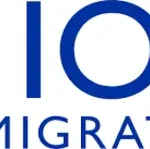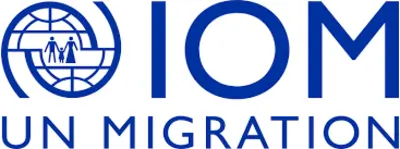
International Organization for Migration
CALL FOR APPLICATION(CFA)
Open to Internal and External Candidates
Vacancy No.: IOM-CFA/0025/2024
Position Title: International Consultant _Development of continental guidelines for African member states to engage with the private sector to advance regular pathways
Position Grade: Consultant – Category B
Duty Station: Homebased with a possibility to travel
Type of Appointment: Consultant
Estimated Start Date: As soon as possible
Closing Date: 27 March 2024
The AU-ILO-IOM- Joint Programme on Labour Migration Governance for Development and Integration (better known as the Joint Labour Migration Programme, or JLMP) in Africa is a long-term joint undertaking among these organizations in coordination with other relevant partners operating in Africa, development cooperation actors, private sector organizations and civil society representatives.
Organizational Department / Unit to which the Consultant is contributing:
The consultant will work under the direct supervision of IOM JLMP coordinator in close coordination and collaboration with JLMP Program Support Unit (PSU), the programme partners – AUC and ILO – and other relevant specialists in regional offices and country missions.
Project Context and Scope:
Objective of the consultancy
The objective of the consultancy is to develop continental guidelines for African member states to engage with the private sector to advance regular pathways, with the aim of boosting the role of employers and businesses to promote gender responsive skills development, mobility, fair and ethical recruitment and dignified employment of migrant workers, the reunification of families and the migration of the protection caseload across all economic sectors and industries where migrants are active.
More specifically, it aims to;
- Provide analysis on the private sector engagement on regular pathways in Africa to provide the required evidence base for the development of the guidelines. This includes:
- Identify opportunities and challenges of private sector engagement on regular pathways in Africa – in form of a business case analysis looking at the cost and benefits of investing in skills development in CoO versus recruitment of skilled workers.
- Identify key areas of engagement for the private sector to advance regular pathways opportunities within Africa, including on gender responsive and inclusive skills development, labour mobility, employment opportunities, fair and ethical recruitment, migrant worker protection, and family reunification.
- Analyse the role played by governments, employers and business, as well as recruitment agencies (private and public) in skills development, recruitment and employment of migrant workers (also in low paid jobs), and family reunification.
- Assess the global and continental regulatory and policy frameworks, including voluntary frameworks, initiatives and partnerships that govern skills development and employment of migrant workers, family members, analyse lesson learnt and identify any gaps, including work permit and visa regulations for migrant, workers from the perspectives of private sector engagement.
- Develop continental guidelines for African member states to engage with the private sector to advance regular pathways, which follows a right based and gender responsive approach. The guidelines should include specific recommendations for governments, and a business case for employers and businesses, including short examples of good practices to enhance their role in skills development, labour mobility, and ethical recruitment but also family reunification and on focusing on facilitating migration of the protection caseload.
The development of the guidelines should employ a human-rights based approach and incorporate a gender lens. Further, its development should be informed by quantitative and qualitative data and evidence gathered from relevant stakeholders.
Scope of the Consultancy
This consultancy will be conducted under the Joint Labour Migration program (JLMP) and Ethical RecruitmentProgramme, with the aim of supporting the establishment, expansion, and enhancement of regular pathways to accelerate its benefits for migrants, employers, and governments in countries of origin, and destinations. The Joint Program on Labour Migration Governance for Development and Integration in Africa (JLMP) is a long-term joint program among AUC, IOM and ILO, dedicated to the implementation of the 5th Key Priority Area of the Declaration and Plan of Action on Employment, Poverty Eradication and Inclusive Development, which was adopted by the Assembly of Heads of States and Governments (AU/Assembly/AU/20(XXIV)/Annex 3, January 2015) in Addis Ababa, Ethiopia. It also supports the achievement of the First 2023 Ten Year Plan of the AU’s Agenda 2063 and the UN Sustainable Development Goals (SDGs). The programme has the overall objective of contributing to the JLMP Strategic Framework (2020-2030) vision of strengthening the effective governance, and regulation of labour migration, under the rule of law, international migration law principles, and international and regional labour standards, towards increased equitable, full-employment economic growth and sustainable development of the African Continent. Outcome level results of the project include:
- Outcome 1: Strengthened effective, rights based, and gender responsive governance and regulation of labour migration and mobility for migrant workers of all gender identities in Africa.
- Outcome 2: Migrant workers of all gender identities in both formal and informal sectors enjoy safe, humane, and secure working environments, access to and portability of social protection and social benefits, and mutual recognition of skills and qualifications.
- Outcome 3: Improved availability and increased utilization of labour migration disaggregated data and statistics by MS and RECs for evidence-based decision-making, policy planning, formulation, and application.
- Outcome 4: Strengthened governance and accountability of the JLMP.
Making regular pathways accessible and beneficial for all through skills development, mobility and ethical recruitment are inherent parts of the JLMP. Notable milestones on promoting ethical recruitment and skills mobility partnerships have been realized within the framework of the programme. Capacity building support has been provided for state and non-state actors on skills mobility partnerships and ethical recruitment of migrant workers, specifically on International Recruitment Integrity System (IRIS). Building on these achievements among member states and Regional Economic Communities (RECs), tailored interventions are crafted to support development of continental guidelines for African member states to engage with the private sector, with the aim of enhancing the role of governments, employers and businesses to promote skills development, mobility and ethical recruitment of migrant
Tangible and measurable outputs of the work assignment
- An inception report (maximum ten pages) that details the consultant’s understanding of the assignment, and how analysis and the guidelines will be developed. Specifically, the inception report should include the methodology that will be employed, sampling frame/study subjects (sample selection should ensure gender balance), timeline of the assignment, and data collection tools – 5th April 2024. (5 working days).
- Analysis on the private sector engagement on regular pathways in Africa and first (1st) draft guidelines. The first (1st) draft, as outlined above, should be geared on the bases of a human-rights based approach and have a gender lens to ensure the gender responsiveness of the guidelines. Moreover, it should also address all the objectives of the assignment as discussed above – 10th May 2024. (25 working days).
- Incorporate stakeholders’ comments and present a second (2nd) draft guidelines to stakeholders in a virtual meeting – 24th May 2024 (10 working days).
- Revise the guidelines on the basis of the comments and feedback obtained from the meeting and submit a final guideline – 14th June 2024 (5 working days)
Required Qualifications and Experience
Education
- Master’s degree in the field of social sciences, law, international relations, migration or a related field.
Technical experience/competencies
- Proven more than 7 years technical experience in social research on labour migration and private sector engagement on migration issues;
- In-depth knowledge of contemporary migration dynamics/migration, labour and employment and development;
- Strong knowledge of human rights, labour standards and gender in the context of labour migration;
- Proven previous professional experience consisting of substantial participation in evaluations, policy formulation and/or reviews in related areas.
- In-depth knowledge of migration governance as well as labour migration, diaspora and development, and return/reintegration issues;
- Knowledge of global, continental and regional policies, laws and initiatives related to labour migration, migration and mobility, work and employment;
- Proven experience in social research in/on Africa will be an advantage;
- Excellent writing and analytical skills;
- Strong interpersonal, networking, and presentation skills.
Skill
- Strong analytical, writing, editing and communication skills.
- Ability to manage time efficiently, effectively handle multiple tasks and competing priorities, and meet tight deadlines.
- Excellent analytical and organizational skills; ability to think critically and creatively.
- Attention to detail and highly organized, collaborative, and team oriented.
Language
- Excellent written and spoken English is essential.
- Proficiency in other UN official languages is highly desirable.
Travel requirement:
The development of the strategy is a home-based assignment. If travel is required, it will be coordinated with IOM. IOM rules on travels will apply.
Competencies:
Values
- Inclusion and respect for diversity: respects and promotes individual and cultural differences. Encourages diversity and inclusion.
- Integrity and transparency: maintains high ethical standards and acts in a manner consistent with organizational principles/rules and standards of conduct.
- Professionalism: demonstrates ability to work in a composed, competent and committed manner and exercises careful judgment in meeting day-to-day challenges.
- Courage: demonstrates willingness to take a stand on issues of importance.
- Empathy: shows compassion for others, makes people feel safe, respected and fairly treated.
Core Competencies – behavioural indicators
- Teamwork: develops and promotes effective collaboration within and across units to achieve shared goals and optimize results.
- Delivering results: produces and delivers quality results in a service-oriented and timely manner. Is action oriented and committed to achieving agreed outcomes.
- Managing and sharing knowledge: continuously seeks to learn, share knowledge and innovate.
- Accountability: takes ownership for achieving the Organization’s priorities and assumes responsibility for own actions and delegated work.
- Communication: encourages and contributes to clear and open communication. Explains complex matters in an informative, inspiring and motivational way.
Specifications for applications:
Technical proposal
- Submit a technical proposal which summarizes a proposed workplan and proposed methodology for developing the AU Guidelines and Toolkit for the collection and utilization of quality administrative data for labour migration statistics, as well as outline the relevant experience for all experts engaged. While submitting the technical proposal, the experts shall ensure to attach the following:
- Cover letter (max 1 page) explaining why they are suitable for the work.
- Relevant Experience (max 2 pages).
- Updated Curriculum Vitae of key individual(s) who will undertake this assignment.
- Sample work done in data management, preferably migration data.
Financial proposal: Detail budget with breakdown including tax if applicable.
- The financial proposal shall specify a total lump sum amount (including a breakdown of costs for deliverables, number of working days, activities in the workplan (including meetings, travel expenses, per diem, etc.). IOM SLO (Special Liaison Office) will facilitate logistics and payment of services according to the workplan and milestones achieved in the deliverables.
How to apply
Interested candidates are invited to submit applications through [email protected] on or before the closing date 27th of March 2024, referring to the consultancy title and call for the application number in the subject line of the email/application. Applicants are expected to submit the following:
- Financial quotation/proposal relating to this assignment in USD, specifying the professional fee as well as the total all-inclusive consultancy fee and
- Letter of motivation describing the consultant’s suitability for the assignment
- Up-to-date curriculum vitae with three professional referees and
- Two examples of similar works.
Please note that only shortlisted candidates will be contacted.
Applicants who do not follow the required procedure will automatically be disqualified from the competition.
Deadline for Submission – 27th of March 2024
We strongly encourage qualified women to apply!
Deadline: 27 Mar 2024

